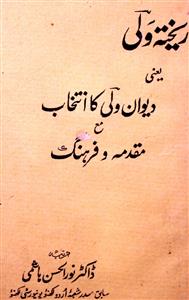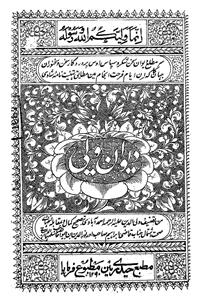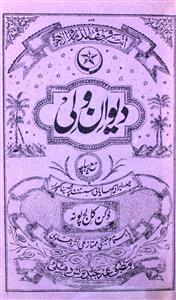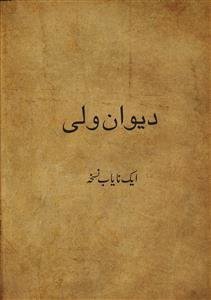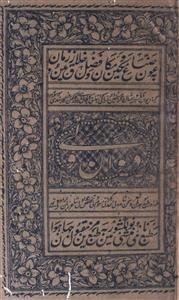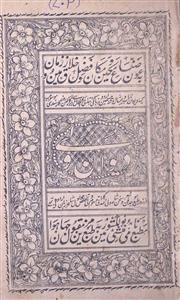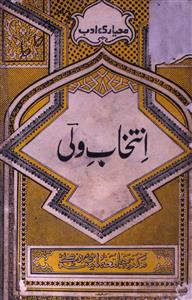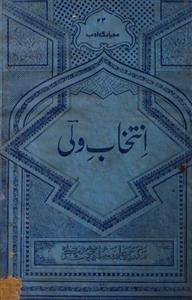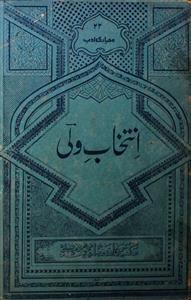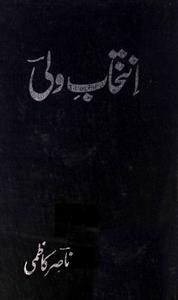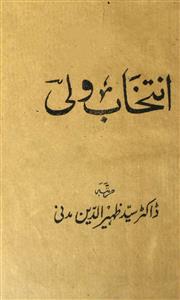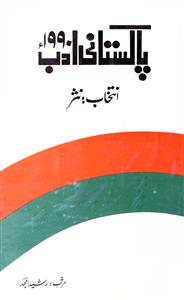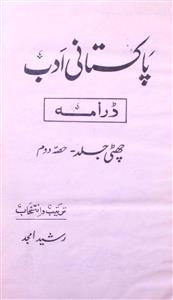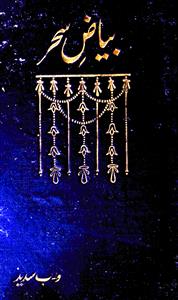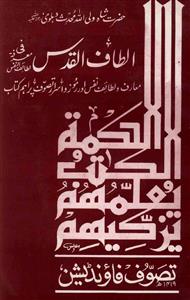 For any query/comment related to this ebook, please contact us at haidar.ali@rekhta.org
For any query/comment related to this ebook, please contact us at haidar.ali@rekhta.org
About The Book
ولی دکنی سب سے پہلے شاعر و ادیب تھے جنھوں نے غزل کو جدید زبان و مضامین عطا کئے ، اُردو غزل گوئی کو سماجی عمل اور تحریک کی حیثیت بخشی ، زبان کی پوشیدہ صلاحیتوں کو ابھارا۔ اپنے دور کے ادبی اور فکری روایات کو شاعری کا حصہ بنایا ، غزل کے اظہار کے سانچے مرتب کیے اور زبان کے مختلف تجربات کے ذریعے ایسا شعری سرمایہ دیا جو غزل کی ترقی میں معاون ثابت ہوا۔بقول رام بابو سکسینہ "ولی کو ریختہ کا موجد گویا اُردو کا چاسر(chausar ) خیال کرنا چاہیے"ولی کا کلام بڑا خوش رنگ اور خوشگوار ہے۔ بہار آفریں الفاظ ،خوب صورت تراکیب ،گل و گلکشت کی تکرار ، حسن کے ترانے اور نغمے ، مناسب بحروں کا انتخاب اور اسالیب فارسی سے گہری واقفیت اور ان سے استفادہ۔ ان سب باتوں نے ولی کو ایک بڑا رنگین شاعر بنا دیا۔زیر نظر کتاب"ریختہ ولی"ولی کے دیوان کا انتخاب ہے۔کلام سے پہلے ایک طویل مقدمہ ہے ، جس میں ولی کے حالات سے لیکر ان کی شاعری اور شاعرانہ عظمت کا ذکر کیا گیا ہے۔
About The Author
Vali Deccani (1667-1707) whose name is variously recorded in histroy as Shamsuddin Mohammad Vali, Shams Valiullah, Valiuddin Vali, and Vali Mohammad Vali, is generally recognised in literary history as Vali Deccani and, at times, Vali Gujarati. Said to have been born in Ahmedabad in Gujarat, or Aurangabad in Maharashtra, he travelled to the far ends of the south and the north, including Delhi. He is claimed till now both by Deccan and Gujarat although he lies buried in the city of Ahmedabad where his grave was vandalised during the infamous riots of 2002.
Vali lived in a time of political and social turmoil but sought his sustenance from the larger mystic traditions of India. He considered literature as a way of negotiating between the physical and the spiritual. The figure of the lover in his poetry represents both the worlds of the sensual and the non-sensual. Even though well versed in the Persian literary tradition and the Deccani and Hindi phraseology, Vali surprised the literary circle in Delhi with his non-Persianised Urdu divaan and its linguistic freshness, which till then was called rekhta, a language of the lesser literay kind, not quite fit for sober poetic expression. His choice for the plebeian idiom and his effort to blend it with other linguistic and literary traditions of the north and the south altered the stereotypical notions of those who championed the purity of language, as a necessary condition for serious literary expression. A master image-maker and an innovator of refreshing similes and metaphors, Vali has come to be categorised as a canonical figure in Urdu poetry.
 For any query/comment related to this ebook, please contact us at haidar.ali@rekhta.org
For any query/comment related to this ebook, please contact us at haidar.ali@rekhta.org
